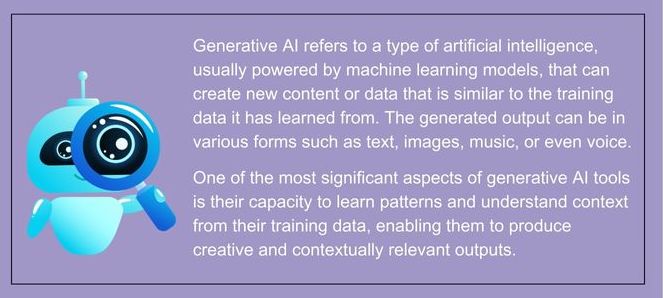The introduction of new AI documentation tools promising to save educators time has created quite a buzz in the sector, with many ECEC professionals debating the ethics and merits of adopting these tools. Notably, questions have arisen about their alignment with the principles and practices outlined in the Early Years Learning Framework (EYLF), and the Early Childhood Australia (ECA) code of ethics.
"AI is not something new—a range of AI tools have been available in our lives for a long time,” said Dr Kate Highfield, a teacher and researcher known for her exploration of young children's engagement with technology, play, and learning. “What is new is access to generative AI tools. They do have to be used with caution, as the responses these tools generate are only as good as the information we input and then we also need to consider the data we are uploading, the privacy of this work of our children and of course the requests we are making."

AI tools like ChatGPT and WordTune, which assist with spelling, grammar, and summarising information, are indicative of the significant potential that AI holds in education. However, Dr Highfield warns of the inherent risks in over-reliance on AI and notes that it can't replace the value of relationships built by human interaction.
The first pitfall is about relationships. Within all our work, relationships come first. The risk here is that we allow the technology to take precedence over relationships with our children and their families. AI can’t yet build relationships, so it cannot fully support our work that is relational," she said.
The place of AI in documentation
Jannelle Gallagher, an Early Education Specialist at CELA and former preschool director, trialled an AI documentation app in order to provide an educated view for this article. The app claims to use an educator's observations to help them to understand a child's development and how to extend learning, and offers to write daily learning stories.
"Personally, I don’t think anything replaces the art of conversation," Jannelle observed. While appreciating the potential role of AI in documentation, Jannelle insisted it should serve as a starting point and not a way of "cutting corners." She further intimated her concerns around a one-size-fits-all approach in using AI for documentation, given the diversity and individuality inherent in early education.
“In my opinion we need to look at setting parameters around the use of these tools,” Jannelle noted. “The topic provides an excellent opportunity for critical reflection.”
Jannelle reported that the app allows you to choose from a limited group of theorists and educational philosophies which inform your practice and ways of working, and that a sample of your writing is initially required to ensure the educator’s voice is evident in the output.
On a positive note, she saw that such a tool could help new educators to get started, and provide an opportunity for future growth as educators unpack their documentation with educational leaders.
Ethical implications
The use of AI in early education isn't merely a matter of pedagogical efficacy. It brings to the fore an array of ethical considerations.
Dr Highfield stated, "While there are ethical considerations in relation to children, colleagues and families (particularly around privacy and data ownership), to me the biggest ethical consideration is in relation to our profession.
The ECA Code of Ethics underscores the need for educators to base their work on research, theories, content knowledge, and practice evidence. Does AI support or inhibit this? she questioned.
There is a potential risk of misrepresentation when AI-generated documentation is passed off as an educator's work. Hence, acknowledging AI's role in the process is crucial.
Jannelle proposed the need to set parameters around the use of these tools, viewing it as an excellent opportunity for critical reflection with teams. She pondered, "How would we communicate to families that we are using AI to assist us in writing documentation?"
AI and the human element
The discourse around AI in early education documentation also demands a focus on the human element.
“Documenting is an intellectual journey, driven by our curiosity about children and how they learn," said CELA early education specialist and ECT Meg Anastasi. "It involves nuanced observations and thoughtful discussions that help educators get closer to understanding children. It's through the 'doing' that the learnings and revelations occur. Will AI's involvement in this process reduce 'thinking' and therefore 'learning' in educator practice?"
Furthermore, Meg expressed reservations about AI's alignment with the Early Years Learning Framework (EYLF). The EYLF highlights a holistic view of the child's learning, which takes into account their personality, home life, and community. "Can an AI tool really capture a child’s personality when writing an observation? Can it speak to their progress, their community, or their personality?" she questioned.
Conclusion
While AI presents a potentially revolutionary tool for early education documentation, it requires thoughtful consideration, reflection, and ethical foresight for its appropriate and effective use. It should be regarded as a tool to assist, not replace, educators in their work.
As services consider whether to integrate AI into their practices, the conversation about its place and role should remain inclusive, ongoing, and open to critical reflection. As Dr. Highfield noted, "AI is here—what we do need to do is to use it carefully, to question, reflect and consider."
Have your say in the comments:
- Have you used AI in your work yet?
- Do you think this type of tool is appropriate for the sector?